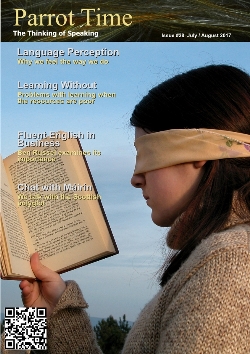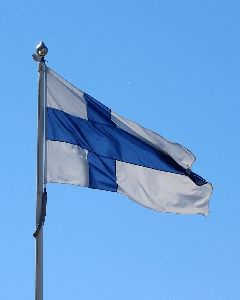Proverbs from the World
Chinese

Proverbs from the World:
Chinese The world is full of languages, which in turn are full of proverbs. Some of them are very culture related, some instead very universal. In this article there is a selection of different types of proverbs. This time the language of choice is Chinese. The word "Chinese" may be interpreted as a group of related but often mutually unintelligible languages or dialects, but for language learners, it mostly means the standard Chinese, i.e. Modern Mandarin Chinese, which is an official language in China, Taiwan and Singapore. It may be written with traditional characters, like in Taiwan, or simplified characters, like in China and Singapore. Language learners are likely to study the simplified characters, which are used in this article. The pronunciation is given in Hanyu Pinyin. The first two examples are called yànyǔ, 谚语. They don't have a specific form, and they represent popular wisdom just like proverbs in any language. The last two examples are called chéngyǔ, 成语. A typical chéngyǔ is very short, only four characters and therefore only four syllables. They usually allude to a story or a historical quotation. Since a chéngyǔ is not a full sentence but a proverbial phrase, it can also be inserted into sentences.  1. Chinese literature has a long history. Here's one sign of it: 读万卷书,行万里路
Dú wàn juàn shū, xíng wàn lǐ lù. 2. Contrary to many others, Chinese speakers seem to have some faith in bad people changing for the better: 放下屠刀,立地成佛
Fàngxià túdāo, lìdì chéng fó. 3. Dragon's are important and valued in the Chinese culture. 画龙点睛
Huàlóng-diǎnjīng  4. In the Chinese cuisine, 枣 (zǎo) is jujube, also called Chinese date, which is a common fruit. 囫囵吞枣
Húlún-tūnzǎo
The four examples are taken from the following bilingual, illustrated books: |
| Proverbs from the World - Chinese | |||
| Writer: | Tarja Jolma | ||
| Images: | |||
| |||
All images are Copyright - CC BY-SA (Creative Commons Share Alike) by their respective owners, except for Petey, which is Public Domain (PD) or unless otherwise noted.
|
Looking for learning materials? Find entertaining and educational books for learning a language at Scriveremo Publishing. Just click the link below to find learning books for more than 30 languages!
| |
comments powered by Disqus

















































